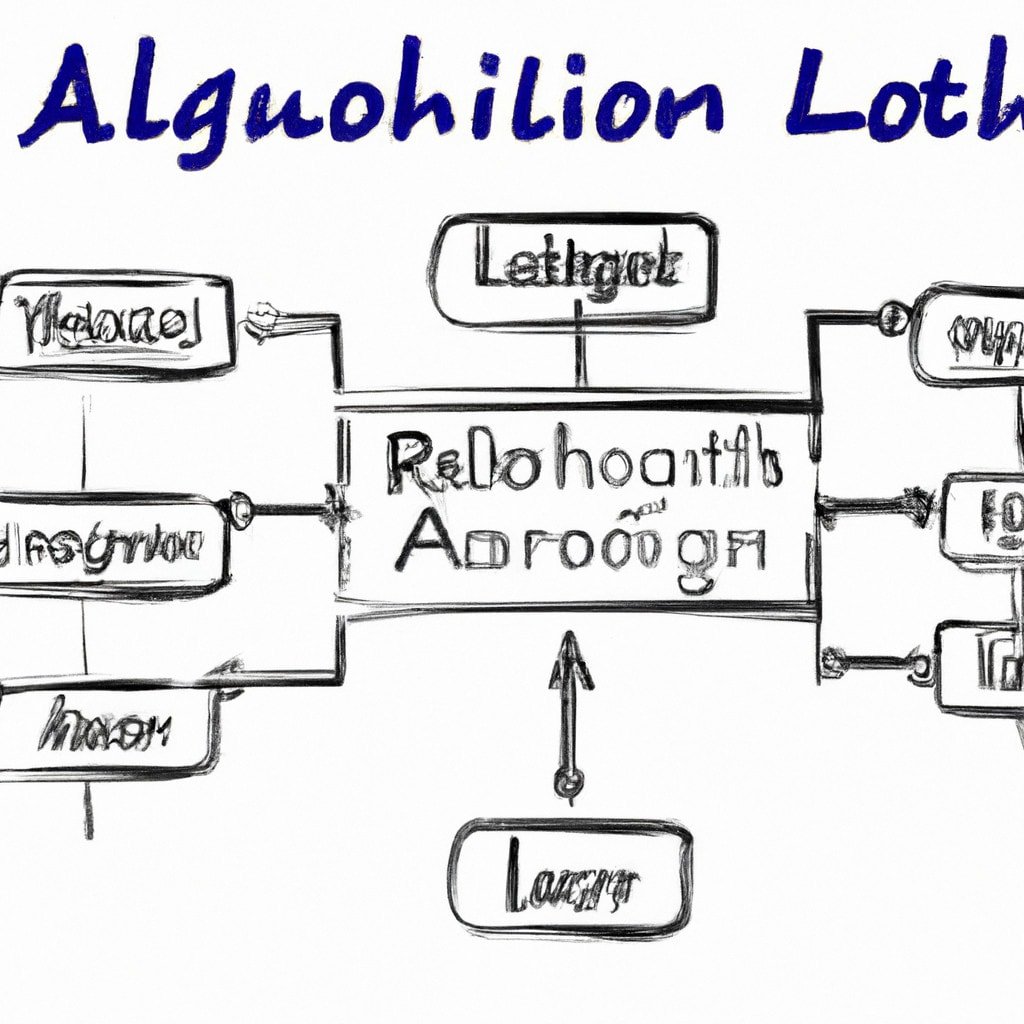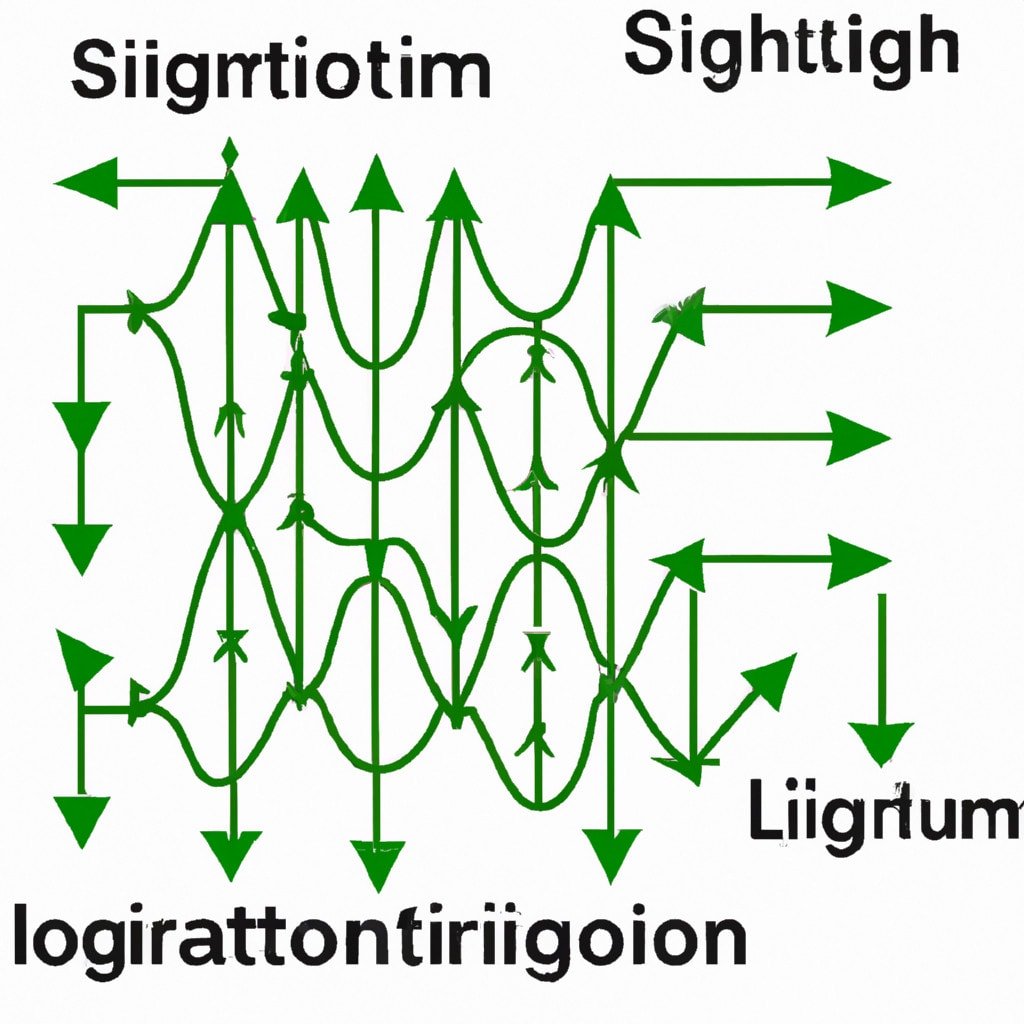Title: What is the Relationship Between Algorithms and Programming?
Introduction
Have you ever wondered how computer programs work? How do they solve complex problems or perform tasks with such precision and speed? The answer lies in the magic of algorithms. In this article, we will unveil the mystery behind the relationship between algorithms and programming. We will explore their connection and learn why they are essential for creating successful programs. So, buckle up and get ready for an exciting journey through the world of algorithms and programming.
H2: Understanding Algorithms
Before we dive into the relationship between algorithms and programming, let’s first understand what an algorithm is. An algorithm is a sequence of well-defined, step-by-step instructions to solve a problem or complete a task. It’s like a recipe that tells you how to cook a dish – you follow the steps in the specified order and get the desired result. Algorithms are the building blocks of every program and form the foundation of programming.
H3: Why are Algorithms Important?
Algorithms play a critical role in the development of efficient and effective solutions. They help programmers break down complex problems into simpler parts, making it easier to tackle and solve them. Moreover, they are essential for optimizing performance, as choosing the right algorithm can make all the difference in how quickly and accurately a program runs. In short, understanding algorithms helps programmers create better programs that save time and resources.
H2: The Relationship Between Algorithms and Programming
Now that we know what algorithms are and why they are important, let’s dive deeper into their relationship with programming. Programming is the process of designing, writing, testing, and maintaining the source code of computer programs. It involves using a programming language to create a set of instructions that a computer can understand and execute. So, where do algorithms fit into this picture? To understand this connection, let’s look at some key aspects of the relationship between algorithms and programming.
H3: Algorithms as the Foundation of Programs
The primary connection between algorithms and programming is that algorithms are the foundation upon which programs are built. As mentioned earlier, algorithms provide step-by-step instructions for solving a problem or completing a task. When programmers write code, they essentially transform these algorithms into language understandable by computers. This means that, to create efficient and effective programs, it is essential to first have a well-designed algorithm in place.
H3: Developing Problem-Solving Skills
Another important aspect of the relationship between algorithms and programming is the way algorithms help programmers develop their problem-solving skills. By working with algorithms, programmers learn to approach problems methodically and break them down into smaller, more manageable pieces. This ability to think critically and strategically is essential for successful programming.
H3: Selection and Optimization of Algorithms
A substantial part of programming involves selecting the right algorithm for a specific problem and optimizing it for maximum efficiency. This is where a deep understanding of algorithms comes into play. With the knowledge of how different algorithms work, programmers can choose the best algorithm for a given problem and fine-tune it to ensure optimal performance. This selection and optimization process are crucial for creating high-quality programs that run efficiently.
H2: Conclusion
So, what is the relationship between algorithms and programming? It boils down to this: algorithms are the heart and soul of every program. They serve as the foundation upon which programs are built, and they help programmers develop critical problem-solving skills. Ultimately, understanding algorithms is essential for creating efficient and effective solutions in the world of programming. If you aspire to become a skilled programmer or want to improve the quality of your programs, mastering algorithms is the key to success.
Model vs Algorithm Explained to Granny
What programming languages should everyone learn? | Charles Hoskinson and Lex Fridman
How do algorithms and programming languages interact to effectively solve complex problems?
Algorithms and programming languages are essential components in computer science that work together to solve complex problems. An algorithm is a well-defined, step-by-step procedure to perform a specific task or solve a particular problem. A programming language, on the other hand, is a set of rules and syntax used to implement algorithms and build software applications.
The interaction between algorithms and programming languages can be better understood by examining the following key aspects:
1. Implementation: Algorithms provide a general approach to problem-solving, while programming languages enable developers to turn these algorithms into code. The algorithm acts as a blueprint or a plan, whereas the programming language serves as the tool to bring this plan to life.
2. Expressiveness: Programming languages are designed to express algorithms and data structures effectively. Different languages may cater to different paradigms or levels of abstraction, allowing developers to choose the most suitable one for their needs. The expressiveness of a language is crucial to implement algorithms efficiently and optimize the overall performance of a solution.
3. Optimization: Some programming languages offer built-in features and libraries that can help optimize the execution of algorithms. For example, they may support parallel processing or provide efficient data structures tailored for specific use cases. These optimizations can make a significant difference in the performance and scalability of an algorithm.
4. Portability: The implementation of an algorithm in a specific programming language can impact its portability across different platforms and environments. Writing an algorithm using a widely supported and platform-agnostic language ensures that it can be readily adapted to various systems without significant modifications.
5. Debugging and Testing: Algorithms need to be thoroughly tested and debugged to ensure their correctness and efficiency. Programming languages offer debugging tools and testing frameworks that help identify issues and verify the correctness of the implemented algorithms.
In conclusion, the combination of algorithms and programming languages provides a powerful means to tackle complex problems. Algorithms outline how to solve a problem, while programming languages offer the tools and infrastructure to implement these solutions effectively. Choosing an appropriate language and leveraging its features can significantly enhance the performance and applicability of an algorithm.
In what ways does the implementation of algorithms enhance the efficiency of programming tasks?
The implementation of algorithms significantly enhances the efficiency of programming tasks in various ways. Some of the key benefits include:
1. Optimization of resources: Efficient algorithms help in optimizing the usage of resources like time, memory, and processing power. This ensures that programs run faster and consume less memory, which is crucial for handling large-scale data or complex operations.
2. Improved scalability: Algorithms can be designed to handle growing amounts of data and complexity effectively. As the input size increases, a well-implemented algorithm will continue to provide accurate results without a significant decline in performance.
3. Increased maintainability: Structured and modular algorithms make the code easier to understand and maintain. When a program follows a clear algorithmic approach, developers can modify, debug, and update it more efficiently.
4. Enhanced reliability: Algorithms help in creating a solid foundation for code by providing well-defined and proven solutions. This results in a reduction of potential errors and ensures the consistency and reliability of the program’s output.
5. Better collaboration: Implementing standardized algorithms allows developers to collaborate more effectively. Knowledge of common algorithms and their applications helps in understanding the approach taken by other developers, enabling smoother teamwork and communication.
In summary, the implementation of algorithms not only optimizes resource usage but also improves scalability, maintainability, reliability, and collaboration, making programming tasks more efficient and robust.
Can a deep understanding of algorithms improve one’s programming skills and adaptability to different programming languages?
A deep understanding of algorithms can indeed improve one’s programming skills and adaptability to different programming languages. Algorithms are the conceptual backbone of computer science and software development, as they provide step-by-step instructions to solve a specific problem or perform a certain task.
Algorithms are often considered independent of programming languages, meaning that once you understand an algorithm, you can usually implement it in any language. By mastering common algorithms, programmers can tackle problems more efficiently and effectively, regardless of their choice of programming language.
Some ways in which a deep understanding of algorithms benefits programming skills include:
1. Fostering problem-solving abilities: Studying algorithms helps programmers develop critical thinking skills and an analytical approach to solving problems.
2. Increasing code optimization: Knowledge of algorithms enables programmers to identify efficient solutions that minimize time and space complexity, resulting in better-performing software.
3. Enhancing adaptability: Familiarity with algorithms allows programmers to quickly learn new programming languages, as they can recognize common patterns and structures across languages.
4. Improving debugging skills: A strong grasp of algorithms helps programmers identify issues in their code more easily and implement fixes faster.
In conclusion, a deep understanding of algorithms not only bolsters programming skills but also improves adaptability to various programming languages. This versatility is crucial for developers, as it allows them to excel in diverse environments and work on a wide range of projects.



